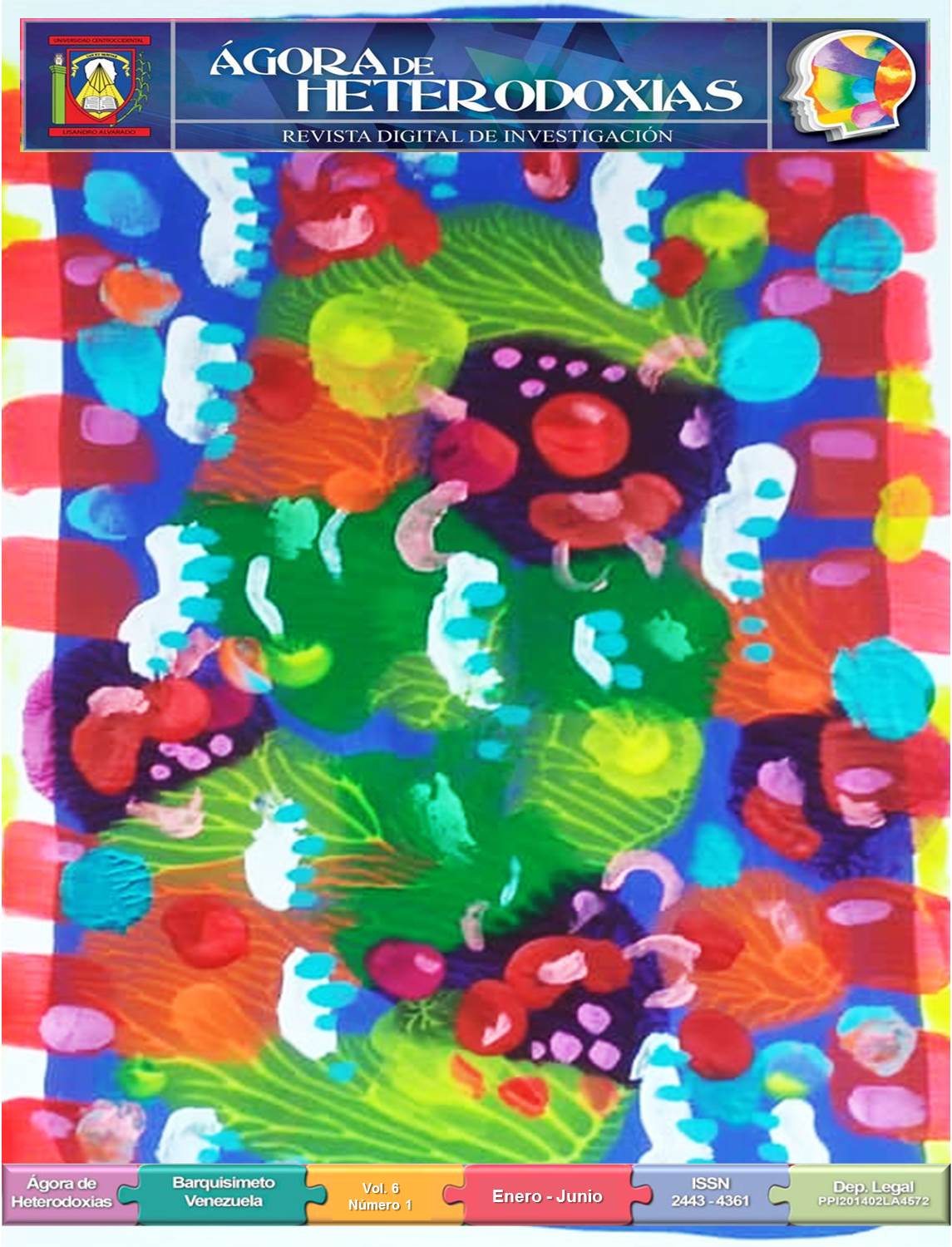Análisis estratégico de la gestión sostenible del patrimonio cultural del Centro Histórico de Santa Ana de Coro, Falcón, Venezuela
Una perspectiva pública y turística
Palabras clave:
gestión sostenible, centro histórico, patrimonio cultural, turismoResumen
La gestión sostenible del patrimonio cultural representa un conjunto de procesos llevados a cabo por los actores sociales del Centro Histórico de Santa Ana de Coro, en el abordaje científico se describen las problemáticas y los componentes que las median, se caracterizan las potencialidades y relaciones de fuerza entre los actores y se analiza estructural y estratégicamente la gestión sostenible del patrimonio cultural del Centro Histórico. La investigación es de tipo descriptiva, sigue un diseño sistémico empírico, en cuanto a la naturaleza del escenario de estudio esta se describe como una realidad deficitaria debido al bajo nivel de integración entre los actores sociales relacionados con la gestión del patrimonio cultural, los hallazgos revelan la prestación de servicios de baja calidad, ausencia de un plan de mercadeo turístico sostenible; debilidad en la aplicación de políticas públicas dirigidas al Centro Histórico. Se concluye que la inexistencia de un modelo de gestión que garantice la sostenibilidad del atractivo; además de la designación de agentes para el desarrollo con limitadas competencias gerenciales y técnicas para el diseño de políticas públicas acertadas, la mirada fragmentada, constituyen las principales líneas estratégicas a tener en cuenta en función del análisis de la gestión del patrimonio.
Descargas
Citas
Almarza, Y. y González, V. (2019). El patrimonio cultural en el contexto del aprendizaje móvil (M-Learning). Revista Ágora de Heterodoxias. 5, (2), 40-51. Recuperado:
Ballart J. (2005). Gestión del patrimonio cultural. Editorial Ariel, S.A. Barcelona, España.
Caraballo, C. (2011). Patrimonio Cultural. Un enfoque diverso y comprometido. Editorial UNESCO. Primera edición. Impreso en México.
Barzelay, M. (2003). La nueva gestión pública. Un acercamiento a la investigación y al debate de las políticas. Editorial Fondo de Cultura Económica, México.
Fusco, L y Gravagnuolo, A. (2017). Circular economy and cultural heritage/landscape regeneration. Circular business, financing and governance models for a competitive Europe. Revista BDC, 15, (1). Recuperado: https://www.researchgate.net/publication/324531137.
Fusco, L., Gravagnuolo, A., Nocca, F. y Angrisano, M. (2015). Towards an economic impact assessment framework for historic urban landscape conservation and regeneration projects. Revista BDC, 15, (2). Recuperado: https://www.researchgate.net/publication/317012524.
Godet M. (1991). "Movimientos y estrategias de los actores: el método Mactor", Futures.
Goeldner, R.; Ritchie, J; Brent, R y McIntosh, R. (2002). Turismo: Principios, Prácticas, Filosofías. Editorial Bookman, Porto Alegre. São Paulo.
Gravagnuolo, A. y Fusco, L. (2016). Multicriteria Tools for the Implementation of Historic Urban Landscape. Quality Innovation Prosperity / Kvalita Inovácia Prosperita, 21, (1). DOI: 10.12776/QIP.V21I1.792. https://www.qip-journal.eu/index.php/QIP/article/view/792
Hall, C. y Williams, A. (2001). Turismo y migración. Nuevas relaciones entre Producción y Consumo.
Herrera, K. (2005). Gestión estratégica para el sector público. Del pensamiento estratégico al cambio organizacional. Gestión y Política Pública, XIV, (2), 403-407. Recuperado:
Ivancevich, J. (2005). Gestión, calidad y competitividad. Editorial McGraw Hill. España.
Nocca, F. (2017). The Role of Cultural Heritage in Sustainable Development: Multidimensional Indicators as Decision-Making Tool. Revista Sustainability, 9. DOI: 10.3390/su9101882. https://www.mdpi.com/2071-1050/9/10/1882
Nocca, F. y Fusco, L. (2018). Towards an Integrated Evaluation Approach for Cultural Urban Landscape Conservation/Regeneration. Journal Region, 5, (1), 33-51. DOI: 10.18335/region. v5i1.160. https://openjournals.wu-wien.ac.at/ojs/index.php/region/article/view/160
Requena y Muñoz. (2006). Turismo e Internet. Factores de desarrollo en países subdesarrollados. Revista Actualidad Contable, 9, (12), 118-131. Recuperado:
Thompson, A. y Strikland, K.F.C. (1998). Dirección y administración estratégicas. Conceptos, casos y lecturas. Editorial MacGraw-Hill Interamericana, México.
Organización Mundial del Turismo. (1996). Seguridad en turismo: Medidas prácticas para los destinos. Madrid.
Organización de las Naciones Unidas para la Educación, la Ciencia y la Cultura. UNESCO (1972). Gestión del Patrimonio Mundial. Paris, Francia. https://whc.unesco.org/document/130490
Publicado
Cómo citar
Número
Sección
Derechos de autor 2021 Viviam Gotía-Molina, Alexa Senior-Naveda , María Fernanda Játem

Está obra está bajo licencia Creative Commons Attribution-NonCommercial-ShareAlike 4.0 International License.
![]() Los autores mantienen los derechos para reutilizar el artículo para fines docentes y de investigación. Los lectores y usuarios pueden leer, descargar, copiar, distribuir, imprimir, buscar o usar sus publicaciones con cualquier propósito legal, sin ninguna barrera financiera, legal o técnica, además de las que son inherentes de las que implica acceder al Internet. Siempre y cuando preserven el derecho de los autores de ser adecuadamente reconocidos y citados Ágora de Heterodoxia no se hace responsable de la información suministrada por colaboradores, la cual no constituye, necesariamente, el punto de vista de la publicación.
Los autores mantienen los derechos para reutilizar el artículo para fines docentes y de investigación. Los lectores y usuarios pueden leer, descargar, copiar, distribuir, imprimir, buscar o usar sus publicaciones con cualquier propósito legal, sin ninguna barrera financiera, legal o técnica, además de las que son inherentes de las que implica acceder al Internet. Siempre y cuando preserven el derecho de los autores de ser adecuadamente reconocidos y citados Ágora de Heterodoxia no se hace responsable de la información suministrada por colaboradores, la cual no constituye, necesariamente, el punto de vista de la publicación.
Derechos del/de autor/es a partir del año de publicación
Esta obra está bajo la licencia:
Creative Commons Reconocimiento-NoComercial-CompartirIgual 4.0 Internacional (CC BY-NC-SA 4.0)




